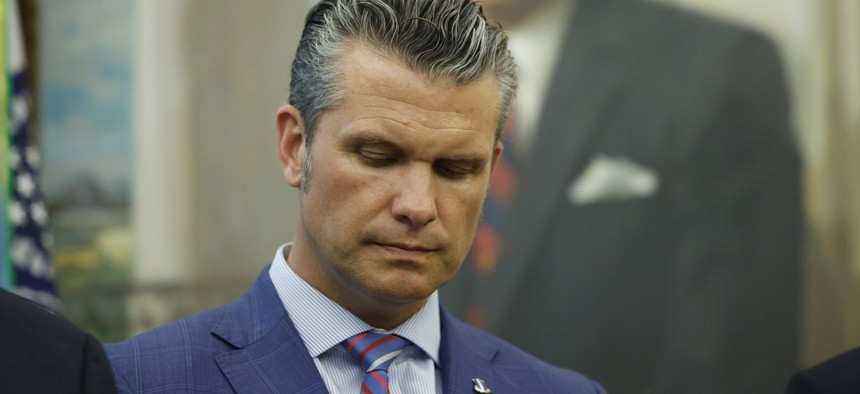
Those who study civilian-military relations talk frequently about the unequal dialogue between America’s civilian and uniformed leaders. Civilian leaders sit atop the chain of command and have the final word on defense policy and strategy matters. In return, they have the responsibility to respect—in the sense of listen closely to, not defer to—the military advice of those in uniform. Without this respect, the dialogue ceases to be a conversation and becomes a series of partisan orders.
Defense Secretary Pete Hegseth’s short-notice, no-explanation summoning of more than 800 general and flag officers from command positions around the world demonstrates a lack of respect for their time and their jobs. It suggests a concomitant lack of respect for their advice.
Perhaps this was unintentional, in which case Secretary Hegseth could apologize and cancel the meeting. Short of that, he could take the opportunity at Quantico to acknowledge and underscore the respect due to general and flag officers.
First, he should vow to respect the non-partisan nature of military service. General and flag officers have taken an oath to the support and defend the U.S. Constitution from their earliest days in uniform, and reaffirmed that oath with each subsequent promotion. Hegseth should cease and disavow any initiative to separate these officers from their oath, especially by inserting hints of partisanship into key actions such as promotions or intelligence reporting,
Second, the secretary should acknowledge the professionalism of general and flag officers, who have spent years acquiring expertise and assuming increased responsibility for recruiting, organizing, training, equipping, and employing the American military, in peace and war. They know their subordinates need to be ready to fight today and tomorrow, and do not need to be reminded of this fundamental responsibility.
Third, as a corollary, if senior civilians feel obligated to fire general and flag officers, they need to state the reason for the firing. The secretary has removed nearly a dozen general and flag officers over the past nine months without explanation. Many of those fired have been women or people of color. Absent an explanation, it seems these flag offers were fired for who they are rather than how they did their job. Such targeted actions will undermine trust between senior civilians and flag officers, and send a chilling message to these groups about whether or not leadership sees any value in their service.
Finally, senior civilian leaders should show respect for general and flag officers as people. They are busy people doing critical work; their time should be appropriately respected and their efforts disrupted only when necessary. This is, or should be, basic to a leader of a large organization.
But what if the short-notice summons was intentionally disrespectful, an odd attempt to display dominance? This would indicate that the unequal dialogue has already begun to shift toward the partisan—and a fundamental change in civilian-military relations in the United States.
How might such a shift manifest itself? You might see senior officers putting in for early retirement, thus removing themselves from any dialogue; choosing to keep quiet amid confused and confusing actions by civilian leaders; preemptively complying with implied, but not issued, orders; aggressively implementing the secretary’s agenda to demonstrate fealty to him; and publicly embracing partisanship for reasons ranging from strong personal support for the administration to hopes for further advancement.
Should such actions continue, they might add up to profound culture change in the general and flag officer corps—one shaped by partisanship rather than the Constitution. That would be catastrophic for the civilian-military dialogue, the military itself, and the country.
The post Don’t let the ‘unequal dialogue’ become a partisan one appeared first on Defense One.




